Unlocking the Power of Parent and Family Advocacy
Advocacy skills are vital for parents and families to champion their children's needs, particularly in educational, developmental, and health contexts. Structured training programs serve as essential platforms to cultivate these skills, enabling families to influence systems, access resources, and support lifelong success for their children. This article explores the critical role of parent and family training in fostering advocacy, highlights effective strategies and resources, and offers practical approaches for building confident, active advocates.
The Significance of Advocacy Skills in Supporting Children’s Needs
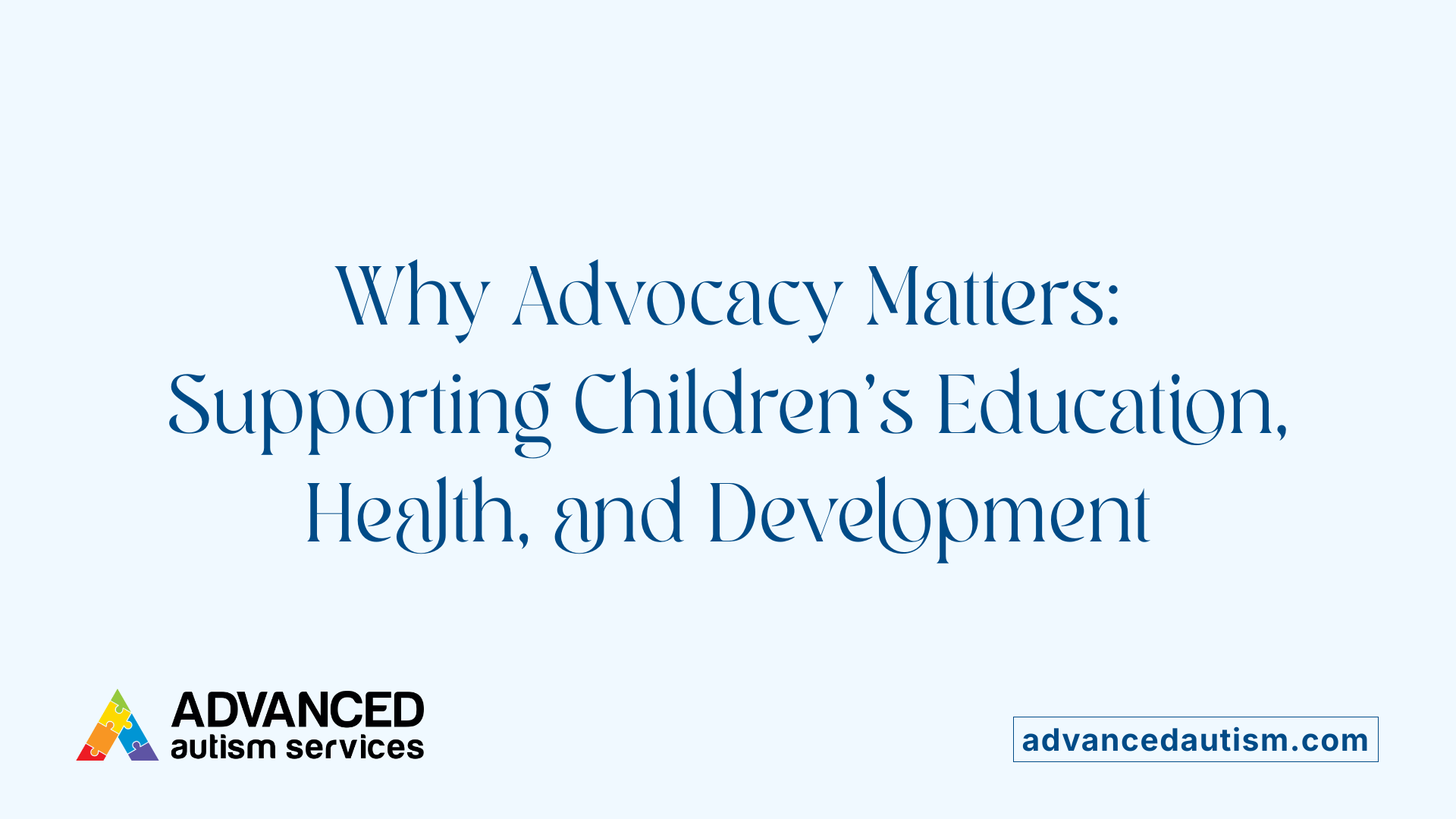
Why are advocacy skills important for supporting children's educational, developmental, or health needs?
Advocacy skills play a crucial role in ensuring children receive the best possible support for their education, health, and development. When children and their families are equipped with these skills, they can actively promote access to quality and equitable resources.
Effective advocacy helps children build confidence and self-awareness. It enables them to clearly express their needs and rights, which fosters independence and encourages self-advocacy from an early age. Parents, educators, and caregivers also benefit by understanding how to navigate community systems, influence policy decisions, and advocate for necessary changes.
By mastering advocacy, professionals and families can work together to address gaps in services and push for more inclusive environments. This collaborative effort often results in increased investments and better resources tailored to children's unique needs. Further, advocating for children helps develop their social-emotional skills, decision-making abilities, and problem-solving strategies, preparing them for future success.
Ultimately, advocacy ensures children’s voices are heard, their rights are protected, and their needs are prioritized in educational and community settings. This creates a more supportive and equitable environment where all children can thrive and reach their full potential.
For additional insights, searching for "importance of advocacy skills for supporting children's needs" can provide further resources and information.
Teaching Advocacy Skills Through Structured Parent and Family Training
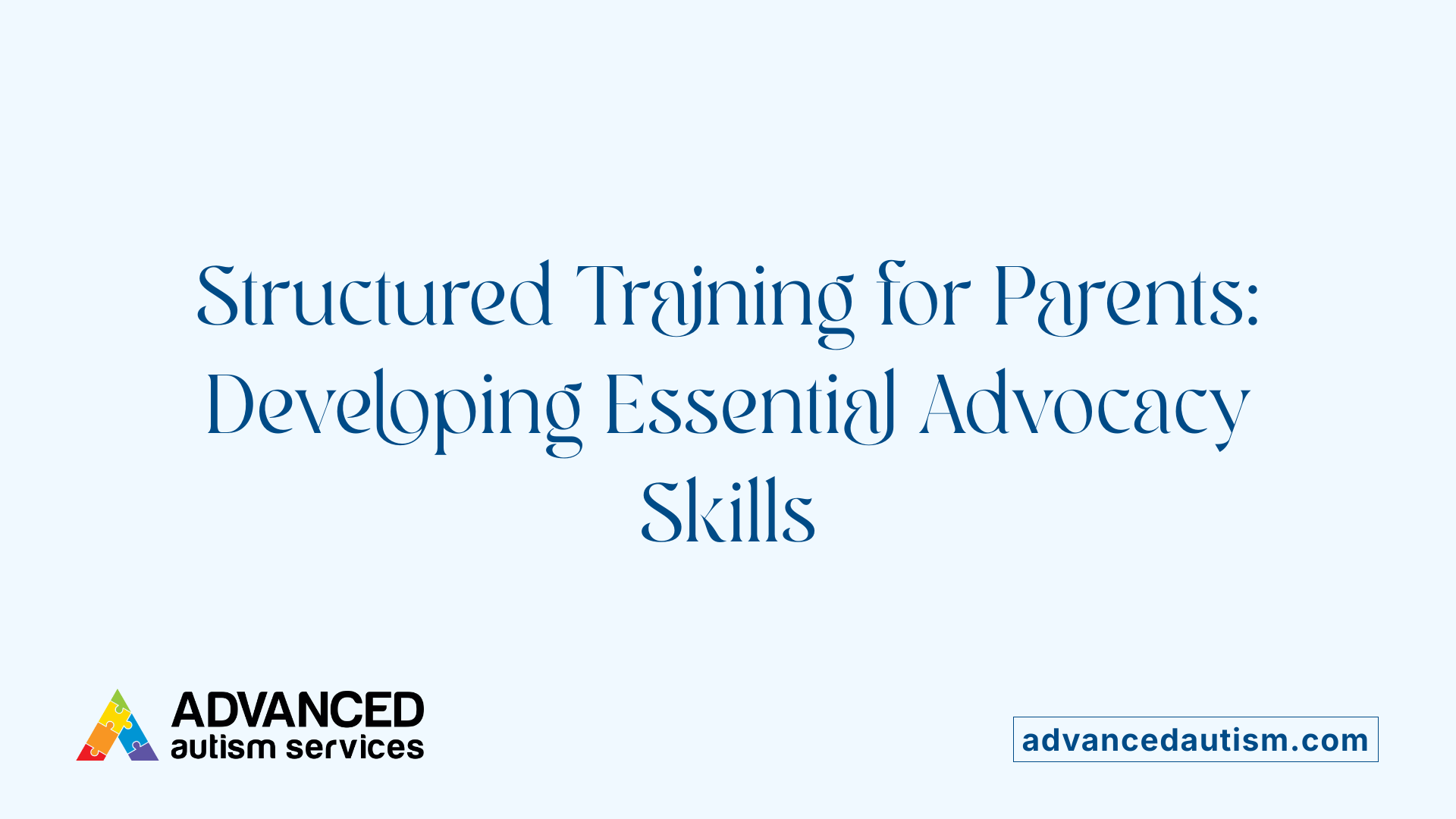
How can advocacy skills be taught to parents and families through training programs?
Parents and families can learn advocacy skills effectively through well-designed training programs that provide practical resources and guided instruction. Programs like Head Start serve as a strong model, offering a variety of tools such as webinars, tip sheets, and curriculum series focused on family leadership and advocacy.
These programs emphasize building confidence among parents, teaching them how to communicate effectively, and helping them understand policies related to early childhood education, health, and safety. For instance, EPIC’s Parents as Advocates Series delivers targeted lessons on how to work with educators, advocate for their children's needs, and navigate complex school systems.
Training often includes developing skills such as organizing community efforts, understanding rights and responsibilities, and using data to make informed cases. Resources such as policy series, research-to-practice guides, and online modules give families the knowledge and tools to become active leaders.
Educators and program leaders play a crucial role by recognizing family assets, listening actively to their concerns, and connecting them to broader community resources. These efforts empower families to take on leadership roles that positively influence their children’s educational experiences and community systems.
The goal of these initiatives is to transform family involvement from simple participation to effective advocacy, fostering a sense of agency and resilience. By providing structured learning opportunities, families are supported in developing long-term advocacy skills that benefit not just individual children but also entire communities.
Effective Strategies and Resources to Cultivate Advocacy Among Families
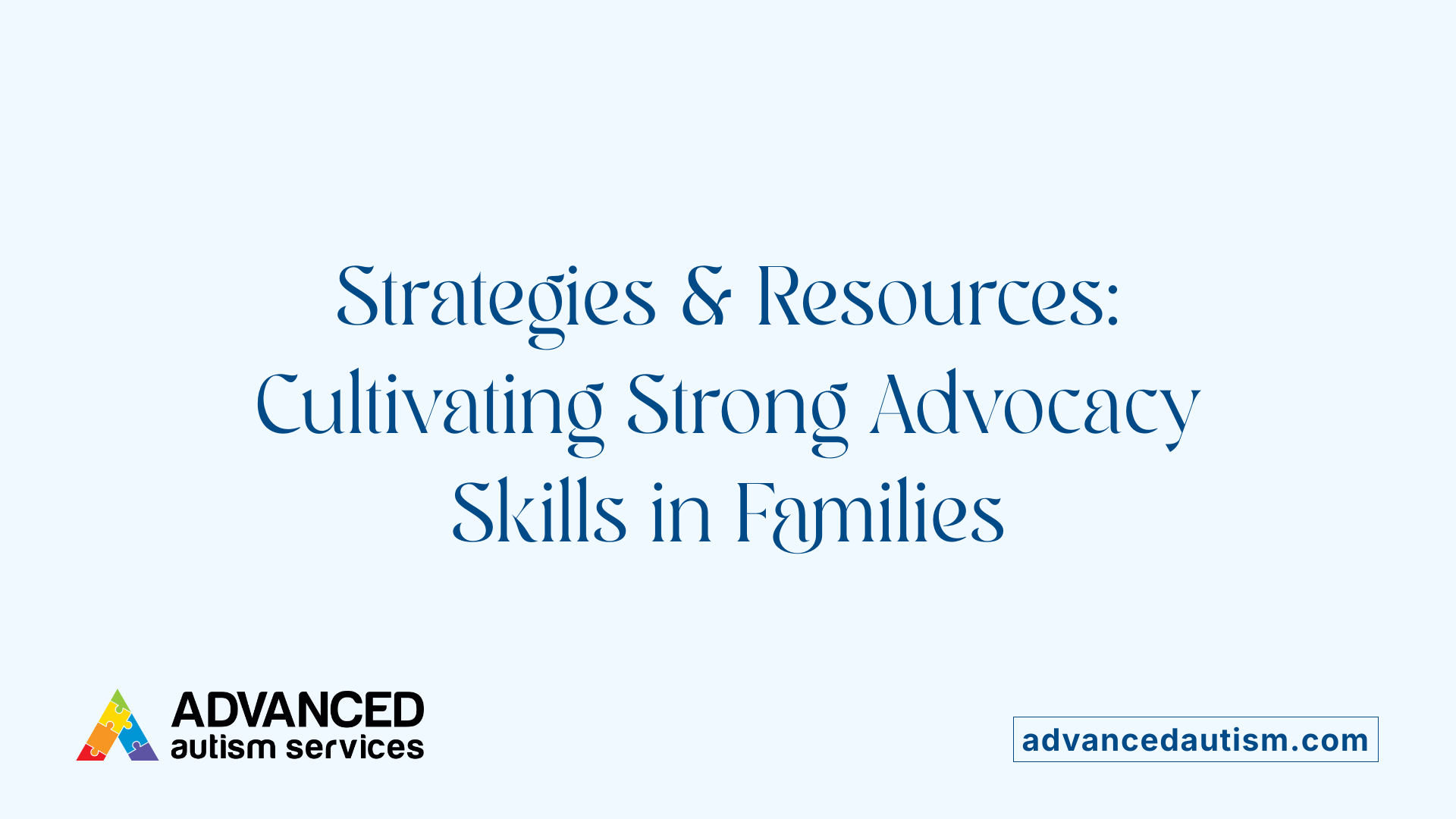
What strategies and resources are effective in developing advocacy skills among parents and families?
Developing advocacy skills among parents and families requires a combination of organized programs, educational resources, and active community engagement. Head Start programs serve as a prominent example, promoting family leadership by encouraging parents to participate in decision-making and policy development within their communities. These programs offer helpful tools such as tip sheets, webinar series, and research-based guides designed to enhance advocacy and leadership capabilities.
Educational initiatives like the FAST Skills curriculum, created by the PACER Center's FAST Project, focus on empowering parents with essential advocacy skills such as understanding their child's needs, knowing stakeholders, and navigating systems. Another valuable resource is the KY-SPIN network, a Parent Training & Information Center funded by the U.S. Department of Education, which trains families to effectively advocate for children with disabilities by covering topics like rights, organization, communication, and dispute resolution.
Community-based workshops, as well as school and leadership programs like the Parent Leadership Training Institute (PLTI), offer practical opportunities for parents to develop, practice, and refine their advocacy skills. These programs often include online courses, policy series, and forums that help families learn about legislative processes, build confidence, and share experiences.
Organizations such as NAEYC also play a significant role by providing resources, policy agendas, and training events that support families and professionals in advocacy efforts at various levels. They emphasize the importance of understanding policy agendas, engaging with elected officials, and connecting with advocacy networks to influence systems that affect early childhood education.
Supporting families involves recognizing their inherent assets—such as love, understanding, and lifelong commitment—as the foundation for effective advocacy. Professionals can foster this by respecting family expertise, actively listening to concerns, and linking families to community resources. Encouraging ongoing participation helps families see advocacy as a skill they can develop over time, leading to positive impacts on their children's educational experiences and community well-being.
In summary, a strategic mix of educational programs, community engagement, policy awareness, and organizational support creates an effective framework for families to grow into confident advocates. These efforts not only empower individual families but also foster systemic change, ensuring that children receive the resources and support they need to thrive.
Preparing Families to Engage in Educational Policy and Systems Change
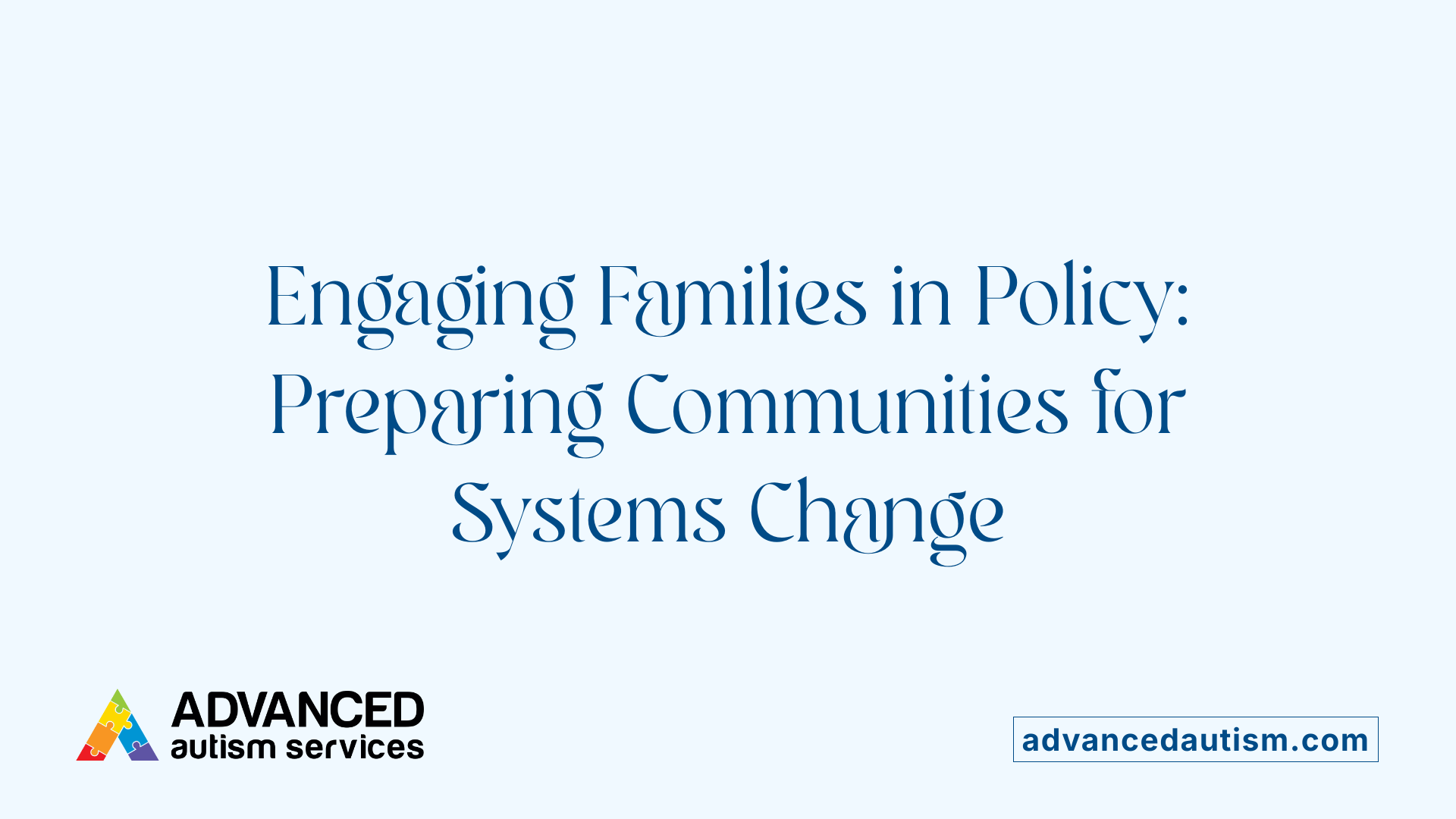
How can parent and family training prepare families to support educational policies and initiatives?
Parent and family training plays a vital role in enabling families to become effective advocates and active participants in educational policy and systems change. These training programs equip parents with essential knowledge about how educational systems operate, including understanding policy frameworks, rights, and responsibilities.
Through various formats—such as workshops, online modules, home visits, and informational resources—families learn about social-emotional development, academic support, and ways to engage with schools and policymakers effectively. For example, resources like webinars and curriculum on advocacy skills—such as the FAST Skills for Effective Parent Advocates—help parents understand how to make their voices heard at local, state, and federal levels.
Programs like the Parent Leadership Training Institute (PLTI) further develop skills in systems understanding, civic engagement, and public speaking, empowering parents to participate in decision-making processes that shape educational policies.
Involving families in policy development and implementation fosters a partnership approach, ensuring that their perspectives influence educational practices and reforms. This active engagement helps to promote initiatives aligned with family and student needs, especially in underserved communities.
When families are trained to support and advocate for equitable education policies, they contribute to creating inclusive, safe, and supportive learning environments. Their involvement supports social-emotional learning, enhances school climate, and ultimately helps achieve positive educational outcomes for all children.
In summary, comprehensive family training strengthens the capacity of families to influence educational systems, advocate for policy change, and support their children’s educational success at every level.
Developing Leadership and Advocacy Capabilities in Parents and Families
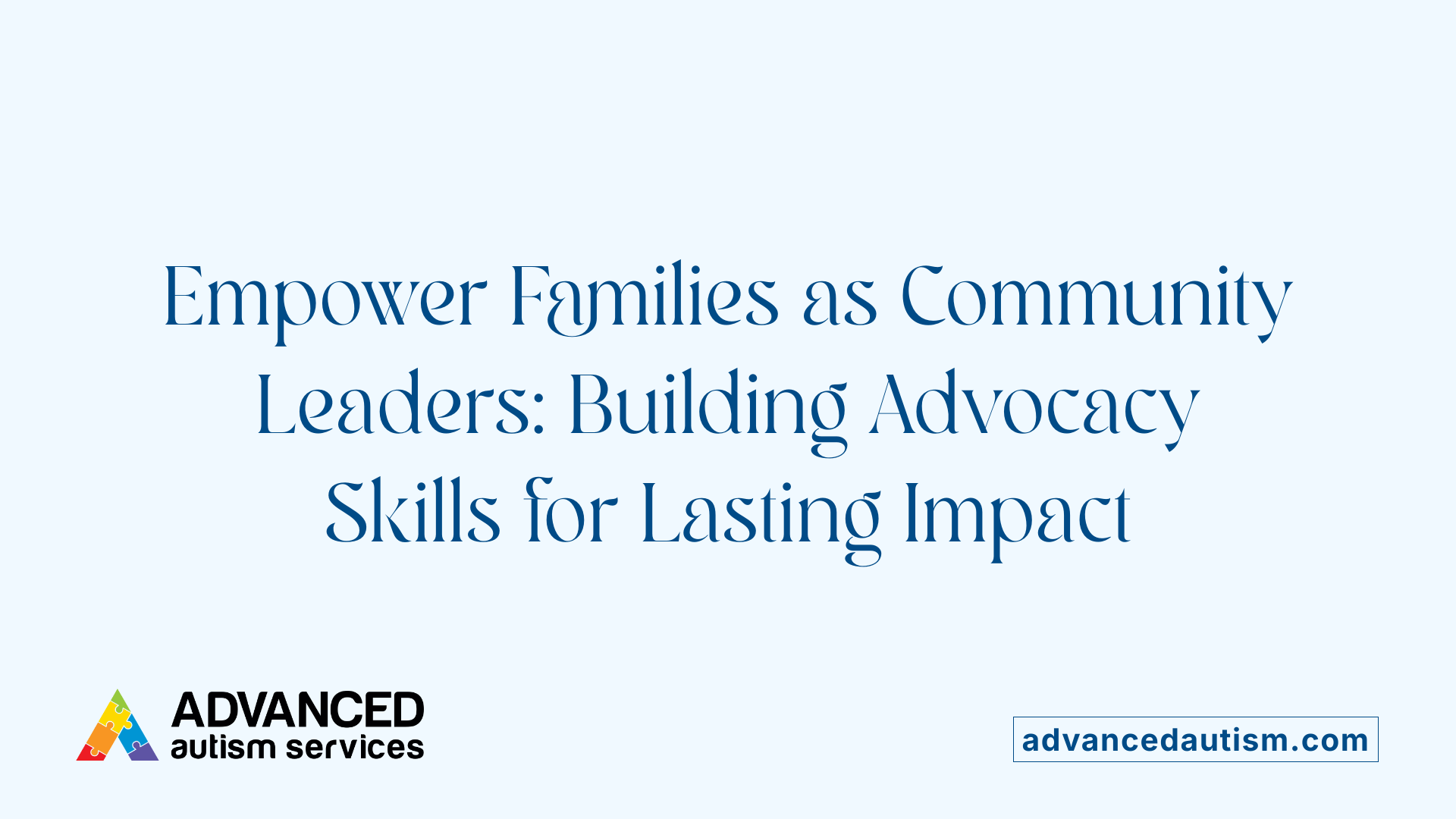
How does parent and family training enhance advocacy and leadership abilities?
Parent and family training play a vital role in strengthening the capacity of families to advocate for their children and assume leadership roles within their communities. These training programs, such as the Parent Leadership Training Institute (PLTI), equip parents with essential skills including civic engagement, effective communication, decision-making, and understanding policy processes.
Through participation in these programs, families gain confidence to actively engage in program activities, influence policy development, and participate in community decision-making. Such involvement not only empowers parents to advocate for their children’s safety, health, and educational needs but also fosters trust and collaboration with educators and community professionals.
Training initiatives also focus on developing leadership qualities—encouraging parents to recognize their existing abilities and build new skills that enable them to champion systemic changes. By learning how to make compelling advocacy cases, navigate systems, and build long-term relationships, families become active contributors to policy reforms and community improvements.
Overall, targeted parent and family training enhance advocacy and leadership, helping families to influence positive changes at local, state, and national levels. These empowered advocates can significantly impact their children’s lives and contribute to creating equitable and supportive community environments.
Fostering a Culture of Family Advocacy
Effective parent and family training programs are critical in developing strong advocates who can champion each child's unique needs and broader educational systems. Through targeted education on rights, policy, communication, and leadership, families become empowered to influence change at local, state, and national levels. Building advocacy skills nurtures confidence, encourages active participation, and fosters partnerships that create equitable, high-quality opportunities for all children. As families learn to advocate effectively, they not only support their children's success but also help shape policies and systems that serve generations to come.
References
- Enhance Parents' Advocacy and Leadership Skills | HeadStart.gov
- [PDF] Six Skills for Effective Parent Advocacy - KY-SPIN
- Parent Advocacy Skills: Finding Your Voice - Start Early
- Leadership and Advocacy - Family Voices of Washington
- Building Skills and Confidence as an Early Childhood Advocate
- The Power of Parents:Supporting Families Towards Effective ...
- Impact of Empowerment Training on the Professional Work of Family ...
- From Parent to Advocate—How to Champion Your Child's Needs
- Rocking and Rolling. Speak Out: Supporting Families in Advocacy



